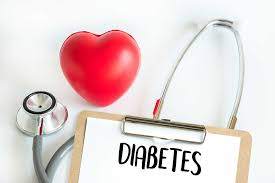
MANAGEMENT
OF
DIABETES
IN
THE
SCHOOL
SETTING
-
Virginia Code §54.1-2901.A.13.20.26, allows employees of a school board, authorized by a prescriber, with written parental permission, and trained in the administration of insulin and glucagon to administer insulin or glucagon to students who are diagnosed with diabetes.Diabetes Medical Management PlanA Diabetes Medical Management Plan (DMMP) must be completed by the health care provider and signed by the parent(s)/guardian(s) each year. The DMMP is due before the beginning of the school year or upon diagnosis. A new DMMP, an addendum, or written orders are required for additions or changes to the DMMP. It is the responsibility of the parent(s)/guardian(s) to obtain any additions or changes from the health care provider. The DMMP must be approved by the Supervisor of School Health Services or a designee, before the plan can be enacted.Once approved, the school nurse, parent(s)/guardian(s), and any unlicensed trained staff and teachers who have responsibility for the child at school shall meet to discuss the DMMP to determine individual needs of the student. This information will be incorporated and developed into an Individual Health Care Plan (IHCP). The IHCP will be shared with those teachers and staff who have direct care of the student. The school nurse will provide a Quick Reference Emergency Care Plan to the Office of Transportation Services for bus drivers.A copy of the DMMP should be attached to the emergency card and an additional copy should be kept with the Category One File.I. TrainingPrince William County Public Schools (PWCS), in accordance with the recommendations made by the National Diabetes Education Program (NDEP 2015), will provide the following levels of training to ensure effective diabetes management in the school setting.Level 1 - All school personnel should receive training that provides a basic understanding of diabetes, how to recognize and respond to the signs and symptoms of low blood glucose (hypoglycemia) and high blood glucose (hyperglycemia), and whom to contact immediately in case of an emergency.Level 2 - Classroom teachers and all school personnel who have responsibility for students while at school-sponsored activities should receive Level 1 training, plus additional training to carry out their individual roles and responsibilities and to know what to do in case of a diabetes emergency.Level 3 - Three or more school staff members, excluding the nurse, should receivein-depth training about diabetes and routine and emergency care for each student with diabetes from a school nurse, a certified diabetes educator, or other qualified health care professional with experience in diabetes. This training will help ensure that a school staff member is always available to help all students with diabetes in case of an emergency, and to help younger or less experienced students or those with additional physical or mental impairments perform diabetes care tasks (e.g., administering insulin, checking blood glucose levels). Parent(s)/guardian(s) are welcome to demonstrate use of a constant glucose monitor and/or an insulin pump.Only PWCS employees/child care contractors who have completed the four-hour Insulin and Glucagon training course, in accordance with the Virginia Department of Education Manual for Training of Public School Employees in the Administration of Insulin and Glucagon, may administer insulin and glucagon to students. This four-hour training shall be taught by a PWCS registered nurse, licensed physician, or certified diabetes educator. The four-hour training must be renewed every three years. The school nurse will provide an annual one-hour training refresher class for each of the two years between formal trainings.When a registered nurse, nurse practitioner, physician or physician's assistant is present, no employee who is not a registered nurse, nurse practitioner, physician or physician's assistant shall assist with the administration of insulin or administer glucagon.II. Self-Carry and Self-CareVirginia Code § 22.1-274.01:1, allows students who are diagnosed with diabetes, with prior parental/guardian consent and approval from the prescriber, to carry and use essential supplies in reasonable quantity to manage routine self-care, as well as emergency treatment of hypoglycemia or hyperglycemia, and to self-test and treat as needed on a school bus, school property, or at a school-sponsored activity.PWCS requires the DMMP completed by the health care provider to indicate the level of independence of the student. Permission to self-treat and self-carry supplies may be revoked should the administration or the school nurse find the child is not responsibly providing self-care or is abusing the self-carry option.III. SuppliesSupplies as listed on the DMMP should be brought to school. It is the parent(s)/guardian(s) responsibility to provide all supplies. All supplies will be stored in accordance with PWCS guidelines.IV. DocumentationPWCS employees/child care contractors are required to document health care provided to a student with diabetes. Information will be recorded on the individual student's Diabetic Treatment Log and/or entered into the student's electronic record.
Click
on
Required
Forms
Below
Virginia
Diabetes
Medical
Management
Plan
(DMMP)
Students
with
Insulin
Pumps
and/or
Continuous
Glucose
Monitors
Diabetes
Treatment
Log
